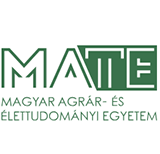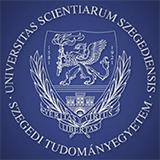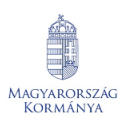Detailed introduction of Óbuda University:
Introduction
Óbuda University is a top practice-oriented technical university in Budapest, Hungary. It is well-known for its education and research in the fields of engineering, information technology, etc. It is an important player in Hungarian higher education, providing students with high-quality practical and scientific education, and is committed to cultivating excellent research and technology management engineers.
Overview
Student size: With more than 12,000 students, including more than 500 international full-time students, it is one of the larger technical universities in Hungary.
Faculty: The school's teachers are experts in their respective fields and have rich national and international experience in teaching and research.
History and establishment time
The school was established in 2000 under the name of Budapest Tech, formed by the merger of three polytechnics, and its engineering and applied science departments and majors have a long history of 130 years. On January 1, 2010, the school was promoted to a university and renamed Óbuda University.
School Strength
Teaching Resources and Facilities: The school provides students with rich teaching resources and advanced teaching facilities, such as the only Da Vinci surgical robot in Hungary, where students can conduct research and development work, and also has multiple technology innovation parks.
Scientific Research Cooperation: Actively cooperate with many well-known higher education institutions and enterprises at home and abroad to carry out various scientific research projects, providing students with opportunities to participate in international scientific research cooperation, and improving the school's scientific research level and international influence. For example, the school participated in the Erasmus + scholarship program in Europe.
Academic Achievements: The school has obtained ISO standard quality certification and won the Higher Education Quality Award. Its education quality has been highly recognized. The research results in the fields of engineering and information technology are remarkable, and have made important contributions to the development of related industries in Hungary and the world.
Nature of the institution
Public university.
Educational philosophy
Focusing on the combination of practice and theory, the university is committed to providing students with high-quality practical and scientific education, and cultivating students to become research and technical management engineers with innovative spirit and practical ability to meet the needs of modern industrial and social development.
Key laboratories and disciplines
Key disciplines: Engineering, computer science, information technology, electrical engineering, mechanical engineering, environmental engineering and other disciplines are in a leading position in Hungary, and its business school's majors such as economics and business management also have a high level of teaching and research.
Key laboratories: The University Research and Innovation Center is an important scientific research platform of the school. It has important value in the research and development of robotics, health informatics and other fields, and has been recognized in Hungary and the world. In addition, the Antal Bejczy Intelligent Robot Center (BARK) has also achieved outstanding results internationally.
Faculty
The school has 7 colleges, 2 education centers, and 3 doctoral colleges, as follows:
Alba Regia Institute of Technology: Provides education and research programs in multiple engineering fields.
Bánki Donát Faculty of Mechanical and Safety Engineering: Focuses on majors related to mechanical engineering and safety engineering.
John von Neumann Faculty of Information: Covers majors such as computer science and information technology.
Kandó Kálmán Faculty of Electrical Engineering: Focuses on electrical engineering.
Keleti Károly Faculty of Business and Management: Offers majors such as economics and business management.
Rejtő Sándor Faculty of Light Industry and Environmental Engineering: Includes majors related to light industry and environmental engineering.
Ybl Miklós Faculty of Architecture and Civil Engineering: Provides professional education in the fields of architecture and civil engineering.
Rankings
QS EECA Ranking 2022: 186th.
Times World University Rankings / Young University Rankings 2022: 301-350th.
QS World University Rankings 2024: 1201-1400th.
Expenses
Tuition fees vary by major and student nationality. Here are some examples of tuition fees for some majors in the 2023/2024 academic year:
Undergraduate courses: For majors such as Business Administration, Environmental Engineering, Mechanical Engineering, etc., the tuition fee per semester for non-EU/EEA students is 2900 euros, and the tuition fee per semester for EU/EEA students is 2000 euros.
Master's courses: For majors such as Computer Science Engineering, Applied Mathematics, Architecture, etc., the tuition fee per semester for non-EU/EEA students is 3500 euros, and the tuition fee per semester for EU/EEA students is 2500 euros.
Doctoral programs: such as applied informatics and applied mathematics, materials science and technology, etc., the tuition fee per semester for non-EU/EEA students is 4,500 euros, and the tuition fee per semester for EU/EEA students is 3,500 euros.
Campus
Location and environment: The main campus is located in Budapest, the capital of Hungary, and there is also a campus in Szekesfehervar. As the political, economic and cultural center of Hungary, Budapest provides students with rich learning and living resources and broad development space.
Campus facilities: The campus is well-equipped with modern teaching buildings, libraries, laboratories and other teaching facilities, as well as student dormitories, sports stadiums, cultural activity centers and other living and entertainment facilities, providing students with a good learning and living environment. The school has also fully renovated the Kandó Kálmán dormitory, which can accommodate 400 students.
-

Hungarian University of Agriculture and Life Sciences
-

University of Pécs
-

University of Debrecen
-

Budapest University of Technology and Economics
-

Semmelweis University
-

University of Pannonia
-

University of Szeged
-

Eötvös Loránd University
-

University of Miskolc
-

University of Sopron
-

Mesoamerican University
-

Istmo University
-

Mariano Galvez University of Guatemala
-

Regional University of Guatemala
-

Galileo University
-

Francisco Marroquín University
-

Rafael Landívar University
-

University of the Valley of Guatemala
-

University of San Carlos of Guatemala
-

Technological Institute of Tlaxcala Plateau
-

Golfo University
-

Technological University of South Sonora
-

Technological University of Huejotzingo
-

Tizimín Institute of Technology
-

Chilpancingo Institute of Technology

